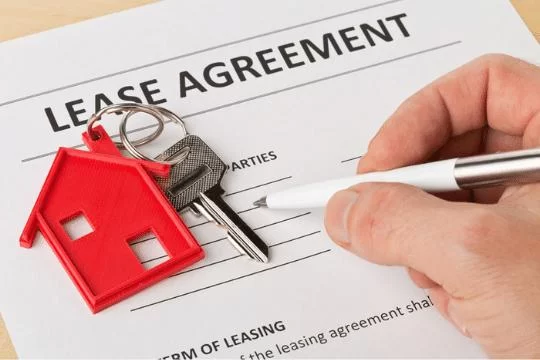
- Understanding-Commercial-Lease-Agreements
- Key-Components-of-Commercial-Lease-Agreements
- Tenant-Rights-and-Landlord-Obligations
- Common-Challenges-in-Commercial-Leases
- Practical-Tips-for-Negotiating-Leases
Understanding Commercial Lease Agreements
Commercial lease agreements form the backbone of any business occupying rented commercial property, yet many tenants and landlords find them complex and daunting. These agreements are legal contracts defining the relationship between the property owner and the tenant, detailing the terms under which the tenant rents the property for business purposes. Understanding commercial lease agreements goes beyond simply signing a document—it requires a deep dive into the rights, responsibilities, and nuances that affect both parties.
Unlike residential leases, commercial leases often involve longer terms, larger financial commitments, and more detailed clauses covering everything from permitted use to maintenance responsibilities. For example, a restaurant leasing a space needs specific provisions about kitchen ventilation and waste disposal, which might not be relevant for an office tenant. These differences make it crucial for business owners to thoroughly understand their lease agreements before committing.
Why Understanding Commercial Lease Agreements Matters
Without a clear grasp of the lease’s terms, tenants risk unexpected expenses, restricted use of the property, or difficulty in renewing the lease. Conversely, landlords need to ensure their property is protected and that rent is paid timely without disputes. Misunderstandings can lead to costly legal battles and disruptions in business operations. This is why professionals, such as those at ESPLawyers, emphasize comprehensive lease review and negotiation support to safeguard interests.
Key Components of Commercial Lease Agreements
A commercial lease agreement is typically structured around several key elements that both parties must understand deeply:
1. Lease Terms and Duration
One of the most critical components is the lease term, which sets how long the tenant will occupy the space. Terms can range from a few months to multiple years, often with options to renew. It is essential to carefully review renewal clauses and notice periods, as these can significantly impact future business planning.
2. Rent and Additional Costs
The base rent is clearly stated, but commercial leases often include additional expenses such as property taxes, insurance, and maintenance fees (commonly referred to as “triple net” leases). Tenants must fully understand these potential extra costs to avoid surprises.
3. Use and Restrictions
Leases specify permitted uses of the property, which restricts tenants from conducting unauthorized activities. For instance, a lease for retail space might forbid industrial manufacturing. Understanding these restrictions helps tenants avoid breaches that could lead to eviction.
4. Maintenance and Repairs
Another major point is responsibility for upkeep. Some leases place all maintenance duties on the tenant, while others keep certain obligations with the landlord. Clear definitions here prevent disputes over who handles repairs, from HVAC systems to structural issues.
5. Termination and Default Clauses
It’s vital to comprehend what happens if either party defaults or wishes to terminate early. Penalties, notice requirements, and cure periods protect both sides but require careful reading to ensure fairness.
Tenant Rights and Landlord Obligations
In any commercial lease, understanding the balance between tenant rights and landlord obligations can save significant stress and expense. Tenants typically have the right to quiet enjoyment, meaning landlords must not interfere unreasonably with their business operations. Meanwhile, landlords have the duty to provide safe, compliant premises and maintain essential services.
Tenant Protections in Practice
For example, a tenant leasing office space in a busy commercial area should expect functioning utilities and reasonable access hours. If the landlord fails to maintain the building or violates these rights, tenants may have grounds to demand repairs or even compensation. Real-life cases have shown tenants successfully asserting these rights when landlords neglected critical maintenance.
Landlord Responsibilities
Landlords must also comply with local laws regarding safety codes, accessibility, and environmental regulations. Failure to do so can expose them to legal penalties and harm tenant businesses. At ESPLawyers, expert advice ensures landlords draft leases that clearly define obligations, minimizing legal risk.
Common Challenges in Commercial Leases
Several pitfalls frequently arise in commercial leasing that can confuse or trap uninformed parties. Understanding these challenges helps tenants and landlords prepare better.
Ambiguous Lease Language
Vague wording on maintenance duties, rent escalations, or renewal rights can lead to disagreements. For example, a lease stating the tenant is responsible for “all repairs” without further specification might unfairly burden the tenant with structural fixes. Clear, precise language is essential.
Unexpected Cost Increases
Variable expenses like property tax hikes or increased insurance premiums can surprise tenants who only budgeted for base rent. Awareness and negotiation of caps or limits on such costs help prevent financial strain.
Use Restrictions and Compliance
Business owners sometimes overlook lease clauses restricting signage, hours of operation, or types of business activities. These can inadvertently limit growth or marketing efforts, underscoring the importance of careful lease review.
Practical Tips for Negotiating Leases
Whether you are a tenant or landlord, negotiation is key to a successful commercial lease agreement. Here are some expert-backed tips to consider:
Understand Your Needs and Priorities
Tenants should clarify what space features, lease length, and flexibility matter most. For landlords, understanding market conditions and property strengths informs fair rental rates and terms.
Seek Professional Guidance Early
Legal experts and commercial real estate professionals provide invaluable insights that can uncover hidden risks or opportunities. ESPLawyers specializes in advising clients to tailor leases fitting their unique circumstances.
Negotiate Key Terms Thoroughly
Focus negotiations on rent escalation clauses, repair obligations, and renewal options. Sometimes small changes here lead to significant long-term benefits or cost savings.
Document Everything Clearly
Ensure all negotiated terms are explicitly included in the lease to avoid misunderstandings later. Oral agreements or informal promises rarely hold up legally.
Understanding commercial lease agreements is essential for anyone involved in leasing commercial property. With thorough knowledge, practical negotiation, and expert advice, tenants and landlords alike can secure arrangements that foster business success and minimize disputes. For tailored support and trusted legal services, ESPLawyers offers comprehensive assistance designed to meet your commercial leasing needs.








